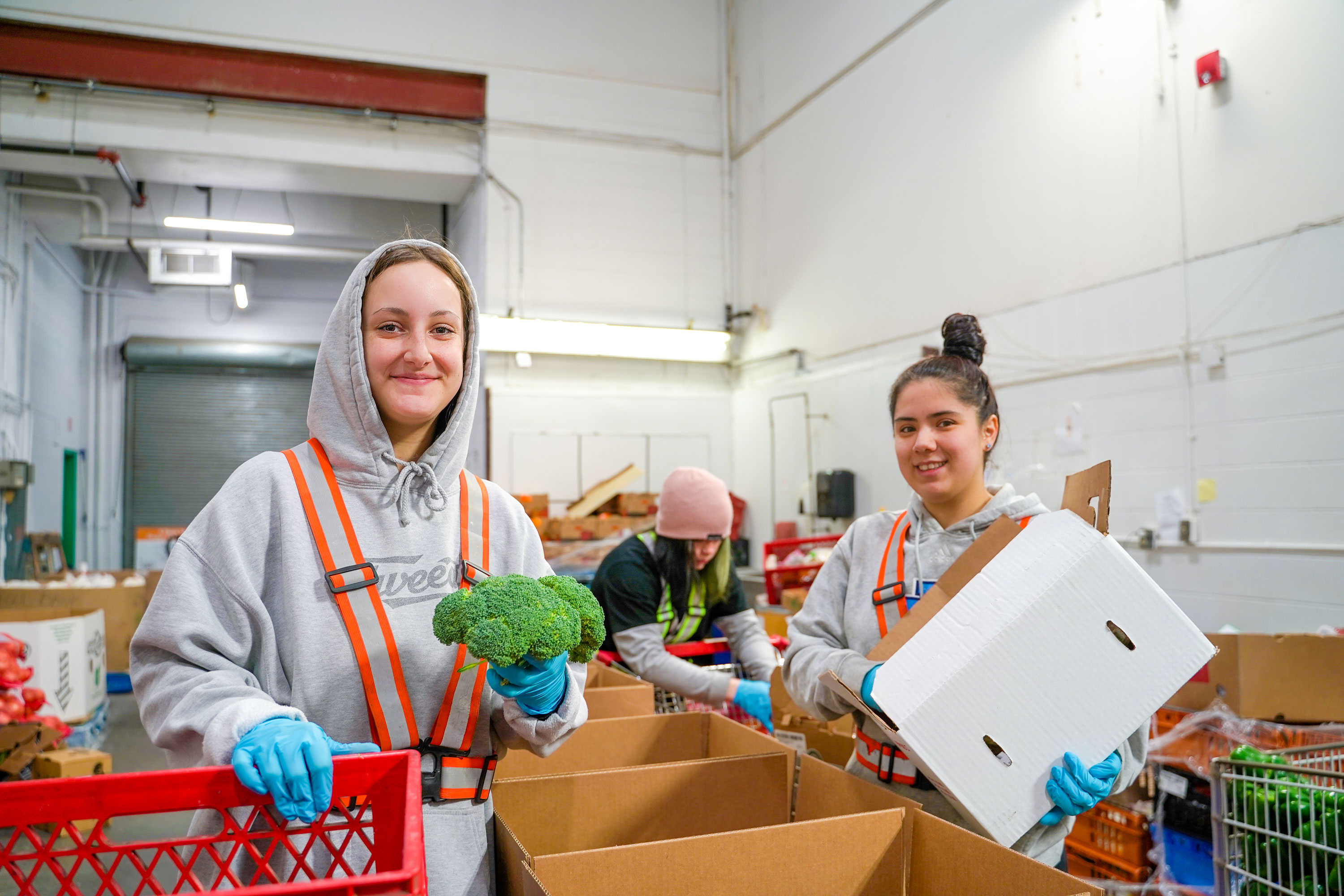If you’ve seen one food bank, you’ve seen … one food bank. Food Banks Canada collaborates with a network of over 5,500 organizations, each of which serves a community with distinct needs and operates in its own way.
A shared set of values and best practices underpins this healthy diversity: every network member upholds Canada’s Ethical Food Banking Code. And now, each one is also working toward accreditation through Food Banks Canada’s Standards of Excellence.
Some food banks have already completed this journey. This month, we’re celebrating the accreditation of Regina Food Bank.

What inspired you to be an early accredited organization?
At Regina Food Bank, we strive to operate at the highest level possible. Part of this work includes making sure we have great benchmarks to measure our work against. Being an early adopter of accreditation aligns with our commitment to best practices and continuous improvement. We saw this as an opportunity to validate our existing processes and identify areas for growth.
Describe your approach to reaching accreditation.
We took a team-based approach. We formed a dedicated accreditation working group with representatives from different departments across the RFB. This committee reviewed each standard, assessed our current practices, and developed action plans where needed. Regular meetings and open communication were key to our success.
What was your first step in the process?
The standards related to food safety and handling were the most manageable for us. We’ve always prioritized these areas, so our existing practices were already closely aligned with the accreditation requirements. Food and warehouse safety are also areas that are not included in other accreditation work beyond provincial licensing, which we have done, so we were excited to see how we stacked up. It was gratifying to see our long-standing commitment to food safety validated through this process.
Which standards were most manageable to meet? Why?
We had a bit of a head start. A bunch of the standards lined up closely with the Imagine Canada Accreditation requirements, which we’d already tackled. So that was a plus for us.
Beyond that, the food safety and handling standards were something that was always top of mind and the accreditation process gave us the reason to prioritize the work of knowing what we are doing informally and documenting our processes. Our day-to-day practices had developed without the rigor of documentation, so it was all there for us, but we just needed to put pen to paper and start documenting.
There is a symmetry between these different accreditation systems feed into each other. There is a world in which the Food Bank Canada Standards of Excellence can be a great jumping off point for Imagine Canada Accreditation fir a food bank.
What/which standards did you find daunting?
How did you overcome this?
We didn’t find any specific standards to be particularly daunting. However, what we did encounter was the need for a significant mindset shift within our team.
The challenge wasn’t in meeting the standards themselves, but in moving from a mentality of ‘we already do that’ to ‘this is how we’re going to demonstrate we do it, and this is how we’re going to document it.’ We realized the importance of not just doing the work, but also creating systems to transfer knowledge and facilitate continuous improvement.
To overcome this, we focused on fostering a culture of documentation and reflection. We encouraged our team to view the accreditation process not just as a validation of current practices, but as an opportunity to create robust, transferable systems. This approach allowed us to build a stronger foundation for future growth and improvement.
What surprised you through the process?
We were pleasantly surprised by how the accreditation process united our team. It created a shared goal that brought different departments together in new ways. The process provided our team members with a fresh perspective on the work being done by other departments, which was quite valuable.
Additionally, we discovered organizational strengths that we hadn’t fully appreciated before. This realization significantly boosted team morale, as it demonstrated that we truly embody the standards we aspire to meet. It was affirming to see our capabilities recognized and validated through this process.
What advice would you offer to other organizations seeking accreditation?
Remember that accreditation is the start line, not the finish line. The work you’re doing is about continuous improvement, not creating processes that will just sit on a shelf. Involve your entire team and view the process as an opportunity for growth rather than just a checklist to complete. Don’t be afraid to ask for help or clarification when needed. And importantly, don’t let perfect be the enemy of good. Start the journey, make progress, and keep improving along the way.
What value does reaching accreditation provide to your organization?
To the food banking system?
For Regina Food Bank, accreditation demonstrates our commitment to being the best-run organization we can be. It gives our donors, partners, and the community we serve the transparency and accountability that we are achieving best practices in food banking. For the broader food banking system, widespread accreditation creates a common language for what success and best practices look like. It can be an enabler of a vibrant and effective network if we can say with clarity that food banks across town, across the province, or across the country are collectively raising the bar, leading to more efficient, effective, and trustworthy food banking in Canada.